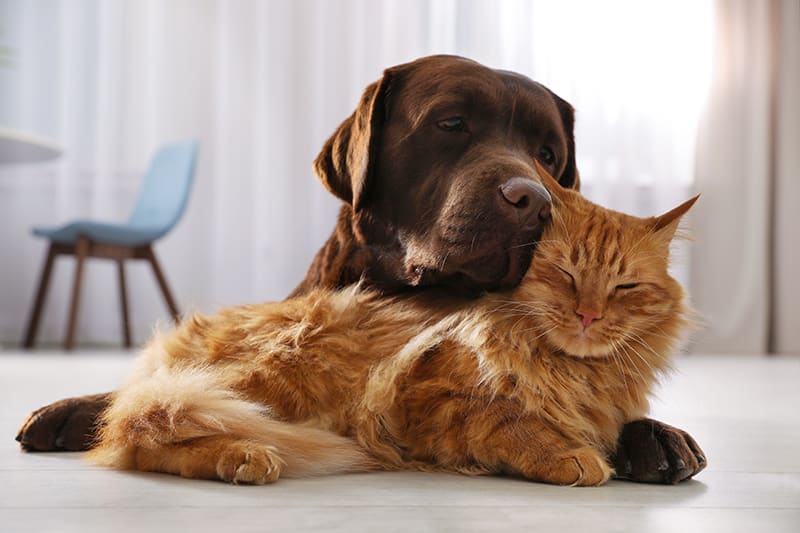Vomiting and diarrhea are common signs of gastrointestinal upset in cats and dogs, and there are a number of things that can trigger these symptoms. Today, our Bartlett vets explain what you should know, and what to do if your pet is experiencing persistent vomiting or diarrhea.
Why is my cat or dog vomiting or having diarrhea?
In dogs and cats, vomiting and diarrhea are common signs of inflamed, irritated stomach and intestines, or gastrointestinal upset.
As unpleasant as it is, vomiting is your pet's way of emptying their stomach of indigestible material to prevent it from getting further into their system.
Diarrhea often occurs when that indigestible material makes it's way fully through your dog’s digestive system, anywhere along the intestinal tract.
What is causing my pet's vomiting and diarrhea?
There are many possible causes for cat and dog vomiting and diarrhea, including viruses and parasites, a reaction to eating something bad, or something more serious like cancer or organ problems (such as kidney failure).
Depending on the severity of your pet's symptoms, your vet can make a proper diagnosis.
What should I do if my pet won't stop vomiting or having diarrhea?
If your pet's symptoms are persistent or recurring it's time to call the vet.
Ideally, treatment is aimed at the underlying problem and can be as simple as temporarily withholding food or as complex as surgery or chemotherapy.
For Occasional or Infrequent Vomiting
Avoid giving your pet food for 12 hours. You can give them up to 3 tablespoons of water every 30 minutes or provide them with ice cubes in the meantime.
After 12 hours, reintroduce the water bowl. Start feeding with a few teaspoons of bland food. If they can keep it down, feed them a little every hour or two.
If the vomiting stops, you can begin feeding them as usual the next day.
For Severe Vomiting
Contact your vet for further advice and follow their instructions closely.
Remove any food that your dog or cat can get into. Inspect your pet for signs of dehydration or shock, including pale skin and gums and abnormal disposition. If your pet is displaying any signs of dehydration it's time to head straight to your family's vet or the nearest animal emergency clinic.
Note: The advice provided in this post is intended for informational purposes and does not constitute medical advice regarding pets. For an accurate diagnosis of your pet's condition, please make an appointment with your vet.
Is your dog or cat experiencing persistent vomiting or diarrhea? Contact our Bartlett vets right away to schedule an examination for your pooch.

Looking for a vet in Memphis?
We're always accepting new patients, so contact our veterinary hospital today to book your pet's first appointment.Related Articles View All
Heimlich Maneuver For Dogs: What To Do If My Dog Is Choking
What should you do if something gets lodged in your dog's throat and they begin to choke? Here, you will find helpful information on the Heimlich maneuver for dogs and what to do if your dog is choking.
Signs That Your Dog May Have a Cavity
Can dogs get cavities? What are the signs of cavities in dogs? In today's post, you will find the answers to these dog cavity questions and more.
How can I help my dog with allergic dermatitis feel better?
Our Bartlett vets often see dogs with skin issues caused by allergens. In today's post, we discuss the different causes of allergic dermatitis, signs of dog skin allergies, and how this condition can be treated.
Periodontal Disease in Dogs - Symptoms & How It's Treated
Healthy teeth and gums play an important role in your dog's overall health, but many dogs don't receive the dental care they need to prevent oral health problems from arising. Our Bartlett vets explain.
